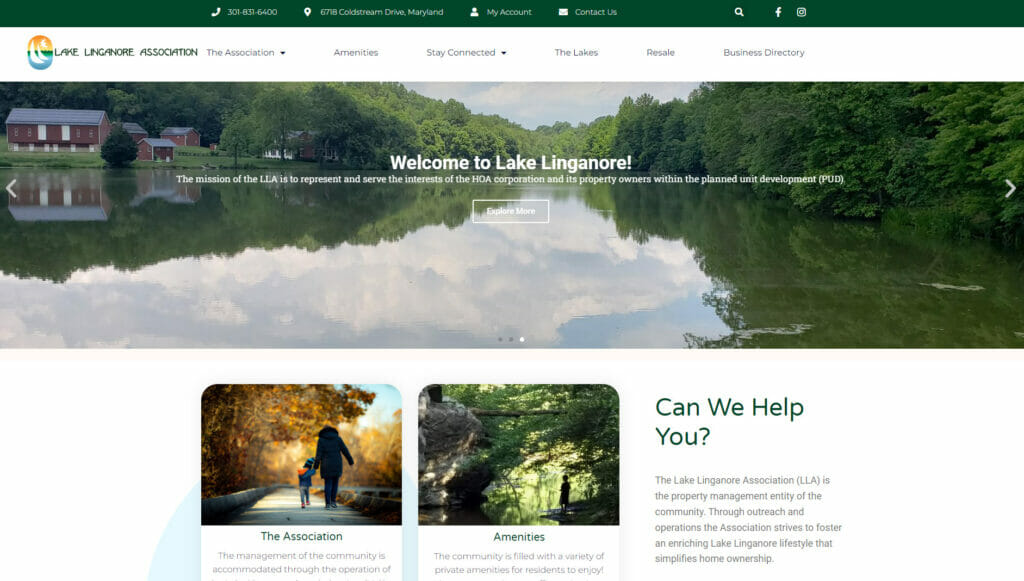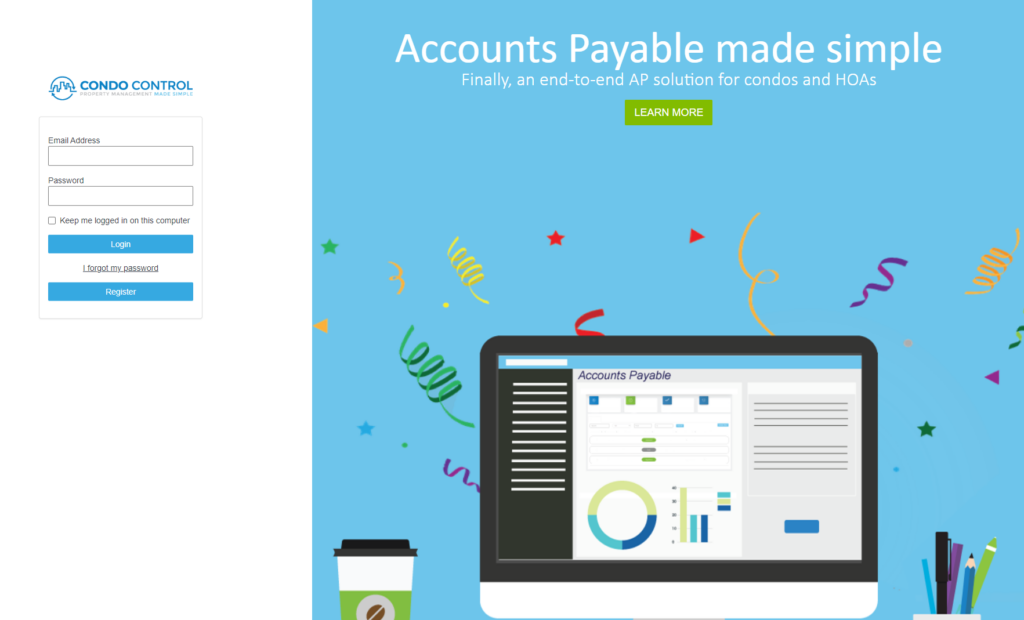When you want to buy a new appliance, purchase tickets to a game, or even find a new job, you’ll use a website. We do so much online that we hardly think about it anymore. So when it comes to condo or HOA affairs, should members have their own website to conduct business, pay bills and find information?
It certainly doesn’t hurt, but in many cases, a residential portal will be more than enough to satisfy these requirements.
Table of contents
- What is a condo/HOA website?
- What is a resident portal?
- How are the two different?
- How to know if your community needs a website
What is a condo/HOA website?
Clear and consistent communication is critical in order for any community to operate well. Without it, boards and management will always be reacting to problems instead of taking proactive steps. Not only does this lead to poor productivity, but it ultimately costs the community money.
Plus, residents and owners don’t like it when they are constantly having to ask staff for information that should be easy to access. Lack of information can also result in a lack of engagement, and that makes the community feel less communal.
Many condos and HOAs have already gotten a website to negate common communication issues. A website can make it far simpler to share notices, news, and documents. Furthermore, it eliminates the need for management and staff to archive records and forms.

A condo/HOA website serves as a central online location for information, but it also works as a marketing or branding tool. The site should represent the character of the corporation or association. By incorporating photos, colours, and your logo, you differentiate your community from others in the area. Really great websites are mobile friendly.
A website may include the community’s contact information, an email address members can use to contact the board of directors, and general information about the building or development.
It might have a couple of pages, or several pages depending on the size of the community. Some even have a blog or detailed events calendar.
Finally, condo/HOA websites should have a tab, page or link that takes members to a password-protected part of the website. Here they can access their own accounts that contain more private material such as personal information, community announcements, governing documents, and a record of payments.
What is a resident portal?
A resident portal (or owner portal) is an online platform designed specifically for condo/HOA members. It aims to help them pay dues or rent, submit requests, book amenities, and give them access to announcements and notices.
Resident portals are accessed through a landing page instead of a full website. However, the page may still incorporate branding elements of the community. Resident portals are password protected, and almost always mobile friendly.

They are supposed to make life easier for residents and reduce the workload for staff at the same time. Condo Control has an excellent platform for residents that is clean and very user friendly. In many cases, it surpasses the needs and expectations of communities, and residents appreciate that they can access their accounts from a mobile app.
How are the two different?
Websites and resident portals share a lot of similarities. They both have the ability to host information and documents, they both allow residents to access self-serve options, and they both bring communities together.
The major difference is that websites are more customizable, and more expensive. Residential portals tend to be simple and straightforward (and that’s not necessarily a bad thing).
The possibilities are limitless when building a website. You can embed videos, create a space where members can submit feedback, or advertise homes for sale.
However, it takes more work to update and maintain a website, and most communities feel more comfortable hiring a professional to create and update their sites.
Yes, there are budget-friendly and free DIY website templates out there, but these sites will be slow, may have tons of ads and they are not very customizable. In short, they will not provide a great experience for you or your members.
If you hire a professional, you could be charged anywhere from $3,000 – $20,000 annually. Some communities are happy to pay that cost because of the value a website can provide, but others feel there are more cost-effective ways to improve communication.
How to know if your community needs a website
There are 2 major reasons why your community would require a website.
- Your country/state/province has mandated that condos/HOAs must have a website
- Your community is very new and you are still trying to fill a lot of vacancies
- Legal requirements
Some states have passed laws that require condos/HOAs to post information on a digital platform. These laws were created so that owners can have easier access to vital community information such as budgets, finances, and governing documents.
Florida, for example, passed a law in 2019 requiring “an association managing a condominium with 150 or more units which does not contain manage timeshare units shall post digital copies of the documents specified in subparagraph on its website.”
Furthermore, “the association’s website must be an independent website or web portal wholly owned and operated by the association, or a website or web portal operated by a third-party provider with whom the association owns, leases, rents, or otherwise obtains the right to operate a web page, subpage, web portal, or collection of subpages or web portals dedicated to the association’s activities and on which required notices, records, and documents may be posted by the association.
Similar laws have been passed for Texas and Nevada.
Note that the laws do provide some flexibility. There is an option to maintain a website or portal, however, based on advice from a lawyer, many communities may elect to get the website.
2. Marketing a new community
New communities are very attractive to prospective buyers. They have an opportunity to buy a place that no one else has ever occupied, and chances are good that there will be some highly desirable amenities available to members.
However, these potential buyers need to know that the community exists before they can place an offer, and the best way to showcase a new condo/HOA is to advertise it using a website. The majority of people who have or are planning to buy a home will look online before they do anything else. If your development is not online, you’re probably going to get overlooked.
A website allows you to share the very best of what your condo/HOA has to offer, and gives prospective buyers an easy way to get in touch with whoever is responsible for growing the community.
Large communities tend to prefer websites
Although big communities (500+ residents) do not need a website, many do prefer to keep their communities connected through a custom site. With so much going on, and so many people to reach, a multifunctional website may prove to be the best option.
Since the site can be customized, and communities can create multiple public and private pages, it may better satisfy owner requirements.
Conclusion
If you do not live in a place that requires governed communities to maintain a website, your condo/HOA is not new, and you have less than 500 members, then a web portal might be the ideal choice for you. If you still aren’t sure whether you need a website or not, feel free to get in touch with our team.


